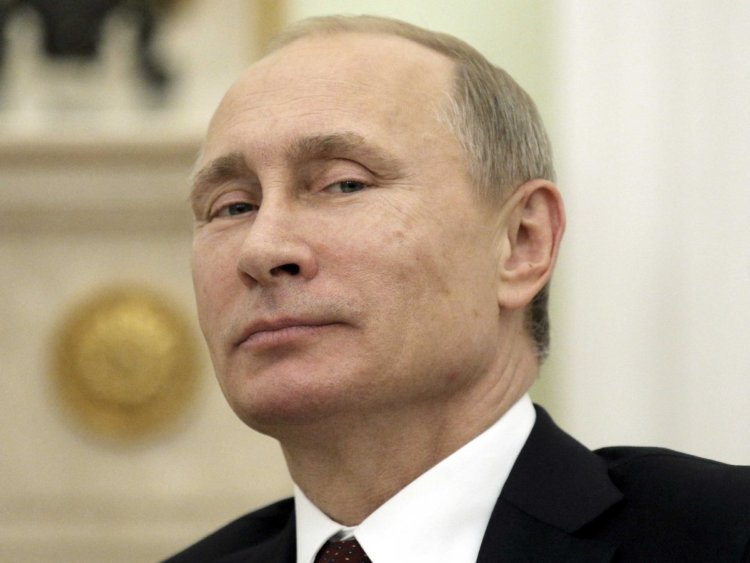By Tony O’Reilly-
Russian-installed authorities in Ukraine’s occupied region of Zaporizhzhia have ordered phone checks on local residents on Thursday, announcing the implementation of military censorship under Russian President Vladimir Putin’s martial law decree.t
The police conducting the checks will look for subscriptions to what the occupation authorities call the “propagandist resources of the terrorist Kyiv regime.” This refers to local Telegram news channels like Berdyansk. Now, Occupied Berdyansk, Vaseline, “and others in that category.” Residents subscribed to these or similar channels will be “immediately suspect,” since every one of these resources calls citizens to espionage and terrorism against Russia and the regions that reunited with it — Zaporizhzhia, Kherson, DNR, and LNR.
People whose phones are subscribed to pro-Ukrainian channels will receive a formal warning; in the future that they may be fined or prosecuted for a crime,it states.
The administration explains the checks as necessary under martial law, introduced by Russia’s President Vladimir Putin in the formally annexed Zaporizhzhia region. The announcement also mentions the Russian “foreign agent” law that affects people under “foreign influence,” and the criminal laws concerning “discrediting” the Russian army, and other “activities undermining the state.”
The Russian-installed regional administration of Zaporizhzhia has not yet formally announced any similar measures. Still, Vladimir Rogov, previously identified as a member of Zaporizhzhia’s “military-civilian administration,” did say that similar checks of the residents’ phones will be done by the police across the region.
“From today in the Zaporizhzhia region, law enforcement officers have begun a selective preventing check of the mobile phones of citizens,” Moscow-appointed official Vladimir Rogov said.
He said those subscribed to “propaganda resources of the terrorist Kyiv regime” will receive a warning, before being fined. He also warned that there will be “criminal liability” for “malicious violations of a law on the activities of a foreign agent.”
Last week, Putin introduced martial law in four Ukrainian regions that he claims to have annexed: Kherson, Zaporizhzhia, Donetsk and Luhansk.
The Kremlin annexed the regions in late September, despite its forces not controlling some of the regions fully.
The main city of Zaporizhzhia is under Kyiv’s control, as well as a large part of the Zaporizhzhia region’s north.
Rogov’s announcement came as Moscow-installed authorities in the neighboring Kherson region prepare for a mounting Ukrainian counteroffensive.
In a speech near Moscow, Putin claimed once again that Russia knew “about an incident with a so-called ‘dirty bomb’ being prepared”, and that Russia knew “where, generally, it was being prepared”. Once again he gave no evidence of the alleged plot, which included the possibility of the device being loaded on to a Tochka-U or other tactical missile, detonated and then “blamed on Russia”.
He also criticised former UK leader Liz Truss for saying she was “ready to do it” regarding the need for a prime minister to be ready to use nuclear weapons. “Well, let’s say she blurted out there – the girl seems to be a little out of her mind,” said Putin. “How can you say such things in public?” He also blamed Washington for failing to distance itself from Truss’ remarks.
Hegemony
Putin used the speech as a platform to rail against western countries and their alleged “hegemony”, saying the world faced the “most dangerous” decade since the second world war. “We are standing at a historical frontier: Ahead is probably the most dangerous, unpredictable and, at the same time, important decade since the end of World War Two.
His speech on Thursday sought to justify Russia’s invasion of Ukraine, a move that has left his country internationally isolated.
Mr Putin also accused the West of nuclear blackmail against Russia to force allies to turn away from Moscow.
The West has denounced recent veiled nuclear threats by the Kremlin.
Earlier this week, the Nato military alliance condemned unsubstantiated claims by Russia that Ukraine might use a “dirty bomb” – conventional explosives laced with radioactive material.
Nato Secretary General Jens Stoltenberg said alliance members “reject this allegation” and “Russia must not use it as a pretext for escalation”.
President Putin was speaking to the annual Valdai forum after a series of recent military defeats in Ukraine and growing public anger at home over a drive to mobilise some 300,000 Russians for the war effort.
The day before his address in Moscow, he had overseen routine nuclear exercises that involved a supposed nuclear strike in retaliation for an enemy’s massive nuclear attack. “We’ve never proactively said anything about Russia’s possible use of nuclear weapons. We’ve only responded with hints to comments voiced by the leaders of Western countries,” he told his audience.
President Putin singled out former UK prime minister Liz Truss for suggesting during an August campaign event that she would be ready to press the nuclear button if circumstances required her to do so. He said he was surprised the UK’s allies did not object: “What were we supposed to do? Keep silent? Pretend that we didn’t hear it?”
However, he has himself repeatedly warned that Russia would use “all available means” to protect itself, in what has been widely seen as a clear nuclear threat.
Russia launched two missiles on Wednesday as part of a routine nuclear exercise
He repeated his recent attacks on the West, and what he called its “dangerous, bloody and dirty game” of denying countries their sovereignty and uniqueness. The West’s “undivided dominance” over world affairs was now coming to an end, he asserted.
“We’re at a historical frontier. Ahead is probably the most dangerous, unpredictable and at the same time important decade since the end of World War Two.”
He said a “future world order is being formed before our eyes”, and accused the West, led by the US, of trying to destroy Russia.




